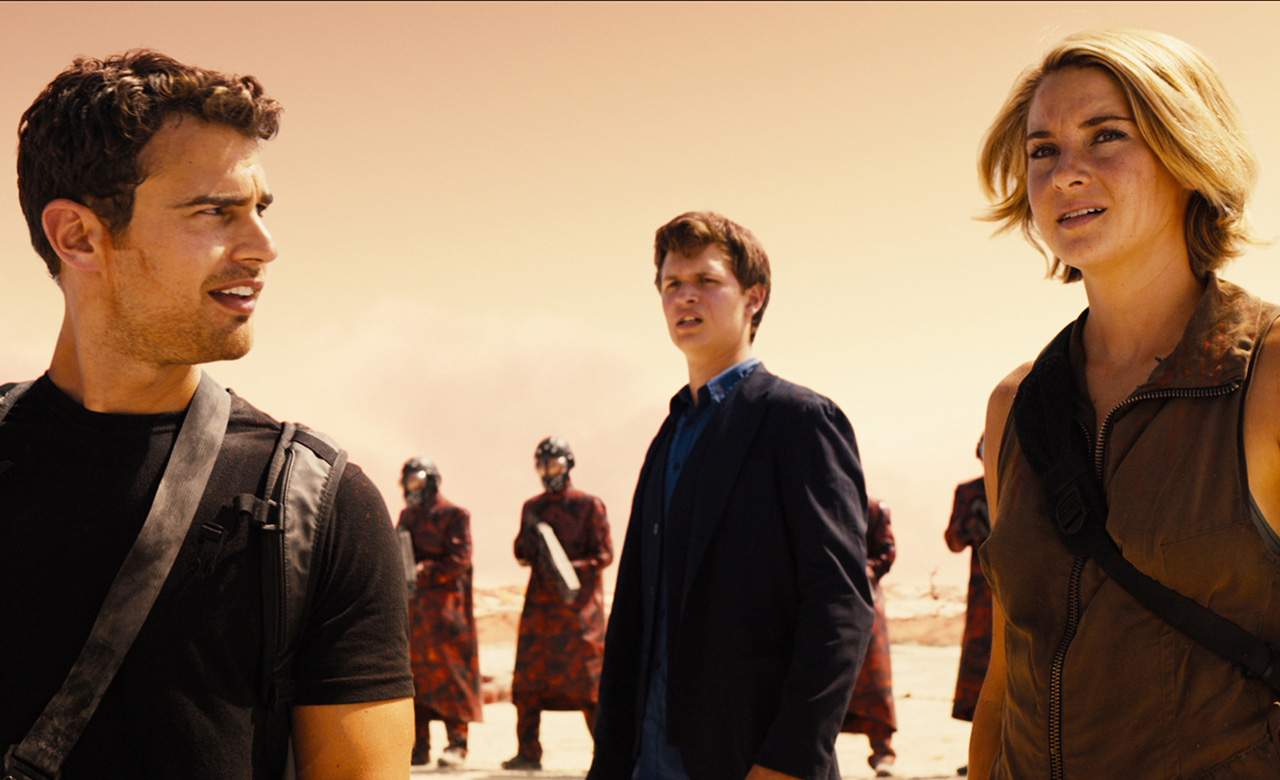The Divergent Series: Allegiant
Three films in, this flimsy young adult series is simply treading water.
Overview
Movie versions of best-selling young adult literature have become an exercise in taking the good with the bad. For every aspect book-to-film adaptations get right — presenting an intricate vision of a dystopian future, and championing strong female protagonists, for example — there are just as many elements that fail to hit the mark. The trend of splitting final instalments into two features typifies the latter, resulting in more screen time but less satisfaction. With The Divergent Series: Allegiant, the series' penultimate chapter proves its worst to date. Indeed, it's little more than filler.
Having cottoned on to the manipulated, artificially manufactured status of her closed-in, factionalised Chicago society, series protagonist Tris Prior (Shailene Woodley) is now determined to discover just what lurks beyond the city's imposing walls. With her trusty band of rebels by her side, including her boyfriend Four (Theo James), brother Caleb (Ansel Elgort) and the duplicitous Peter (Miles Teller), Tris hatches a plan to find the real puppet-masters behind the only way of life she has ever known.
Cue a battle between the past and future, right and wrong, and any other opposing forces that returning director Robert Schwentke can throw into the mix. Allegiant endeavours to place its feisty heroine in the grey zone between two sides and mindsets, as illustrated not only by the rift between the crusading Evelyn (Naomi Watts) and the kindly Johanna (Octavia Spencer) back in Chicago, but also in the machinations of controlling newcomer David (Jeff Daniels) out in the wider world. Yet it does so in as blunt a manner as possible. The film is loaded with obvious clashes, be it between the bonds of love and family, moving forward or retaining the status quo, or spaces of dusty desolation and shiny innovation.
These conflicts are designed to liven up a narrative that is largely treading water while waiting for the final film, but they're ultimately unsuccessful. Equally problematic are storylines about superior DNA strands, child soldiers and Truman Show-like surveillance, all of which add complication but are never especially compelling. Ramping up the bickering and the subplots also comes at the expense of the series' already tenuous sense of character. If Tris and her pals felt thinly drawn in Divergent and Insurgent, and more than a little similar to their counterparts in the likes of The Hunger Games and The Maze Runner franchises, then this time around they're positively flimsy.
Once again, that leaves Woodley to act grim and concerned, James to fulfil the eye-candy quota, Elgort to do very little, Teller to steal all the best lines, and all four to look very bored while doing so. Three films in, they're going through the motions, which may as well be the movie's motto. Of course, a big finale is due to be delivered by 2017's The Divergent Series: Ascendant. However with Allegiant's trying aspects clearly outweighing any lingering sense of intrigue about the underlying concept, an important question springs to mind. No, it's not whether the franchise can be redeemed, but rather if we should even care either way.





